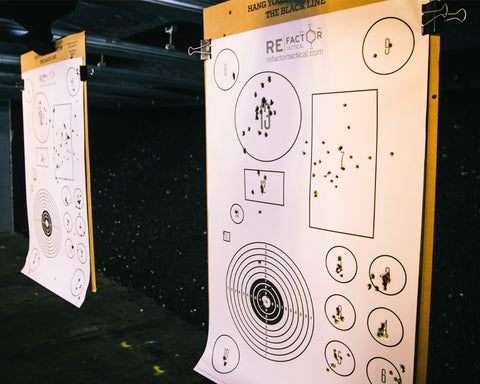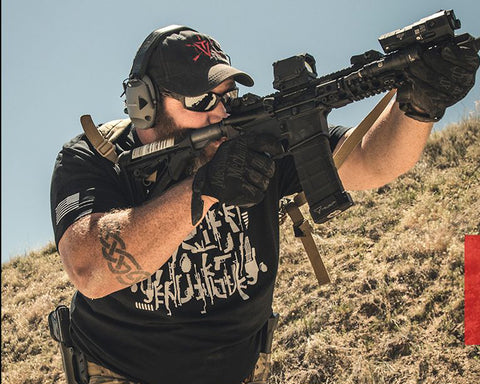What You Need To Know
- ✔ You don't have to make a down payment, but it will save you money on your VA loan
- ✔ Not all sellers will agree to this, but having the seller pay your closing costs will save you a lot of money
- ✔ Refinancing is a great way to save, and the VA won't let you do so unless it makes financial sense
After going through some extensive heartaches while applying for a loan recently, we have decided to put out information to our customers that might help them in the event they want to get a new home loan. Because most of our customers/readers are Veterans, we think this information on the differences between a VA Loan and a traditional loan might be helpful since it was confusing to us starting out.
There are some big differences between a VA Loan and a Traditional Loan and you may be asking what makes a VA Loan better? The reality is, that a VA Loan might not actually be the best loan for you, however, if you’re a veteran chances are that it’s probably your best option.
So what makes a VA Loan Better?
- VA Loans require a 0% down payment- This is big for most home buyers, especially first time home buyers. Most traditional loans require a 20-30% down payment on a house which can be a deal-breaker for a lot of individuals. By not having to put down any money you may be able to get yourself into a home early on rather than having to spend years saving up.
- No Private Mortgage Insurance (PMI)- Traditional loans charge PMI or Private Mortgage Insurance. This is typically .3-1.15% of the entire loan amount each year which can add around $150-200/mo in charges depending on your loan amount. However, VA Loans do not require any PMI since they are backed by the federal government. This piece alone could save you thousands a year.
- Pre-approval- One of the best things about going with a VA Home Loan is once you’re approved for a VA Loan you can set out and find the house you want. This makes closing time a lot easier and makes you a much more competitive buyer. When a real estate agent and or seller find out you have a VA Home Loan guarantee they can often be more willing to work with you when it comes to closing.
 If you are looking to get pre-approved for a VA Home Loan you can go to:
If you are looking to get pre-approved for a VA Home Loan you can go to:
What makes a VA Home Loan Worse?
- Stricter FICO Credit Score standards- On average, VA Home Loan lenders are looking for a credit score of 620 or higher. FHA Loans typically look for a credit score of +580 and Conventional Loans look for a credit score of +620.
- Mandatory Funding Fee- VA Loans require a Mandatory Funding Fee. This fee is 2.15% fee for active duty personnel and 2.4% for National Guard and Reserve Soldiers. This is a one time fee paid upfront at closing and is a percentage of the total value of the home. The downside of this one-time payment is that, unlike a down-payment on a conventional loan, the payment does not go towards your home’s principle.
- It’s not available to everyone- VA Home Loans are only available to actual Veterans. So if you haven’t served, you are ineligible for the loan.
What Credit Score Do I need for a VA Home Loan?
As mentioned above, a FICO credit score of 620 or higher is generally what most VA lenders are looking for when it comes to potential buyers. While this score is traditionally higher than the credit score needed for a conventional loan, you don’t have to put down a down-payment. Looking for more information about VA Home Loans? You can visit our full VA Home Loan Guide here.
How to Apply for a VA Loan
Applying for a VA loan might be easier than you think. The first thing you need to do is get your certificate of eligibility, which you can do through eBenefit. If you don’t have an account or can’t remember your login, your lender should be able to help you. Your certificate of eligibility simply tells your lender you qualify for a VA loan. Once you have that the process is much like buying a home through a conventional loan. The VA is a bit more strict when it comes to approving the house you want to purchase, but the process itself is pretty simple. Keep in mind, before you buy any house you still have to get pre-qualified, meaning your credit score and finances are in order for home buying. You also need to get pre-approved, meaning your finances have been confirmed and you’re officially ready to buy. This all has to be done through a VA approved lender, which isn’t hard to find. The hard part is finding a lender who’s both approved and qualified. It’s typically easier to find a lender well versed in the VA loan process in a larger military community than it would be 500 miles from the nearest military base.
Table of Contents
- What You Need To Know
- Top VA Lenders
- So what makes a VA Loan Better?
- What makes a VA Home Loan Worse?
- What Credit Score Do I need for a VA Home Loan?
- How to Apply for a VA Loan
- Veterans United
- Quicken Loans
- J.G. Wentworth
- Lending Tree
- NASB
Recent Posts
- M4 vs AR15 vs M16: Ultimate 2024 Guide to Differences & Uses
- The Ultimate Guide to M16 Barrel Length: 16” vs. 20”
- M855 vs M193 Face-off: Which 5.56 Round Dominates?
- 22 vs 9mm | Comprehensive Guide on Performance, Uses, and Ballistics
- AK-47 vs AR-15: The Ultimate Comparison and Faxon’s ARAK Hybrid Solution
- The Controversial Glock 18: Legal Status, Challenges, and How to Buy
- The Best SIG P365 Compensator: Elevate Your Shooting Experience with Faxon Firearms
- Shot Placement For Concealed Carry | Stop The Threat
- Hard Head Veterans Unveils American Made HHV ATE® GEN3 Ballistic Helmet
- The Ultimate 350 Legend Q&A: Top 20 Questions Answered






Leave a Reply
Your email address will not be published. Required fields are marked *